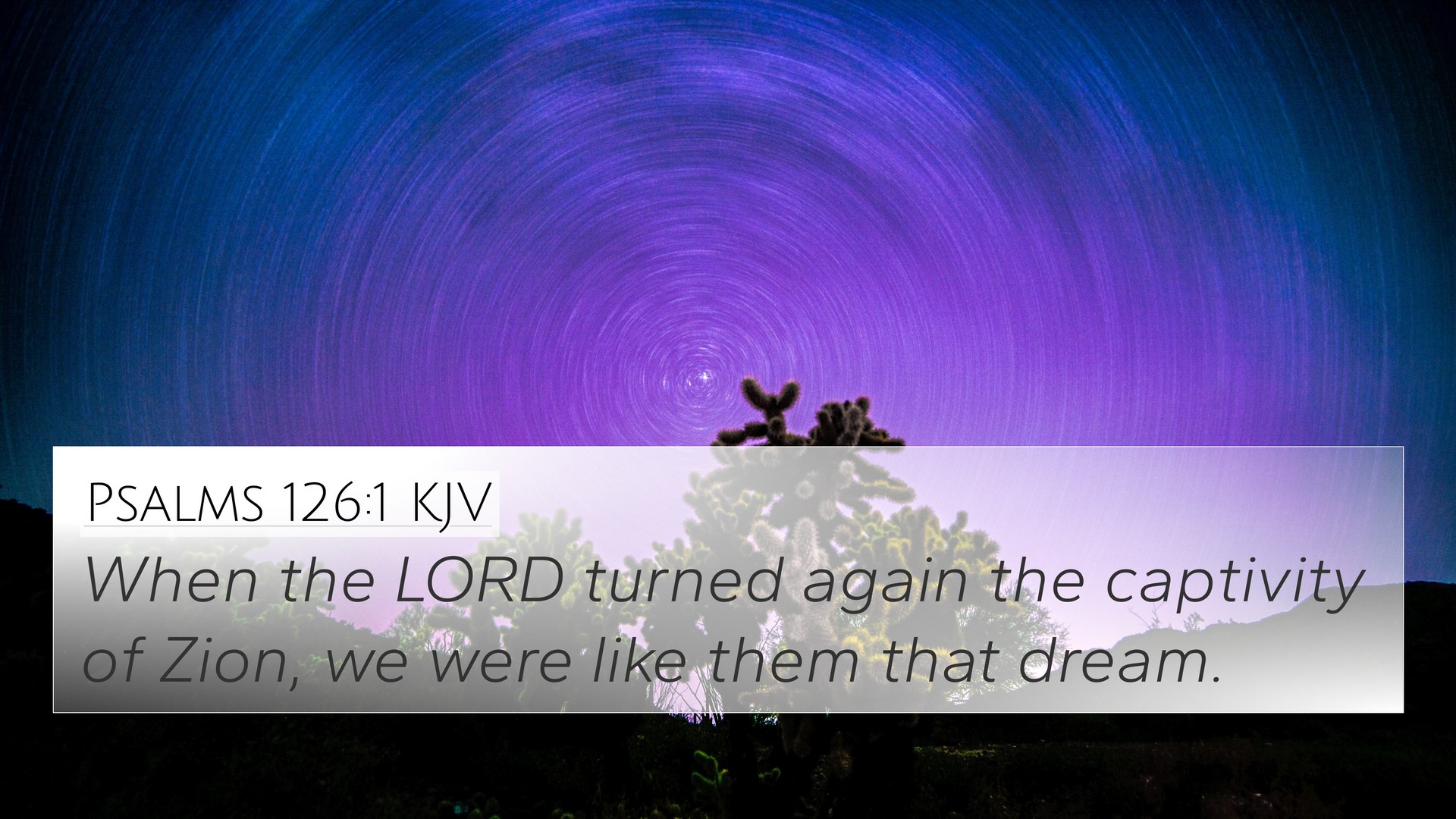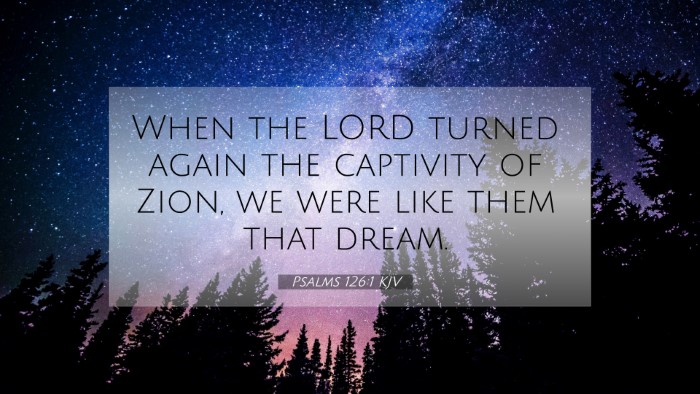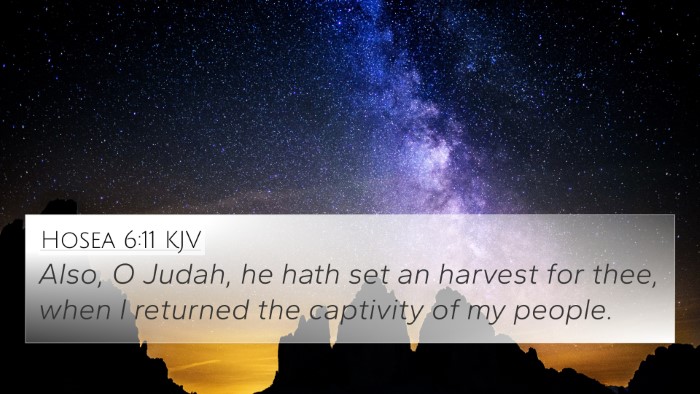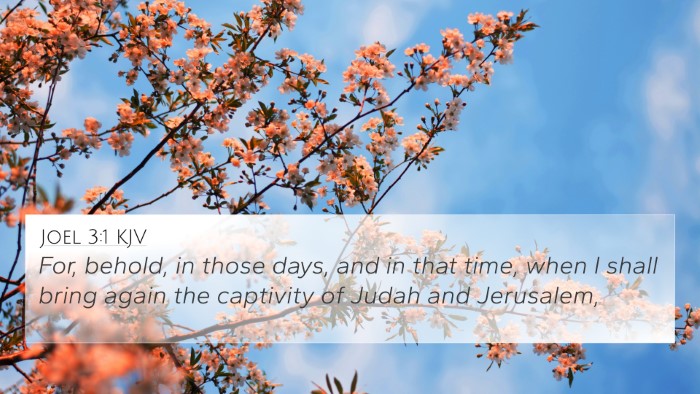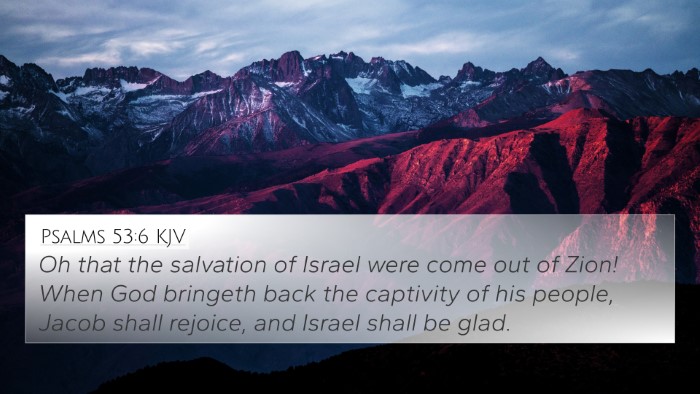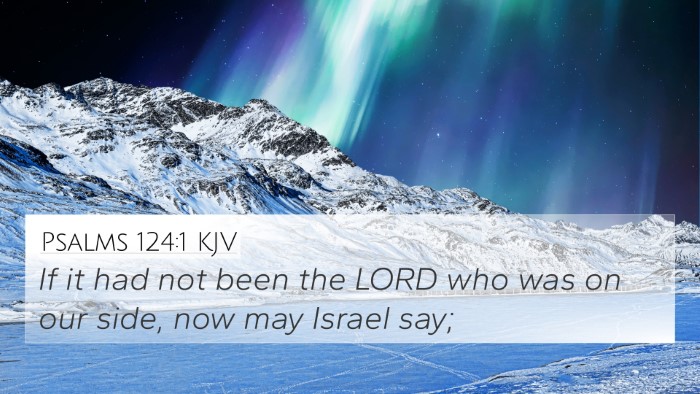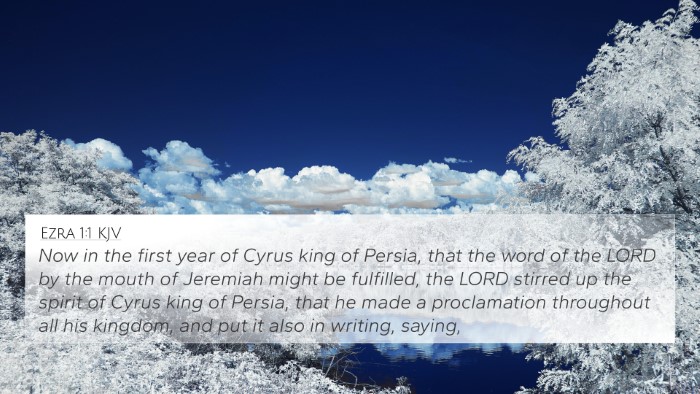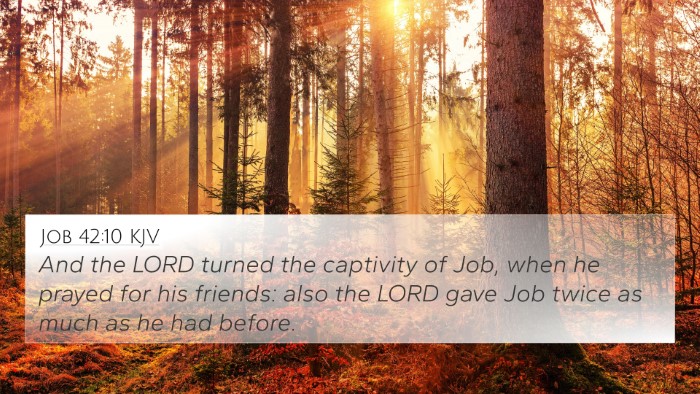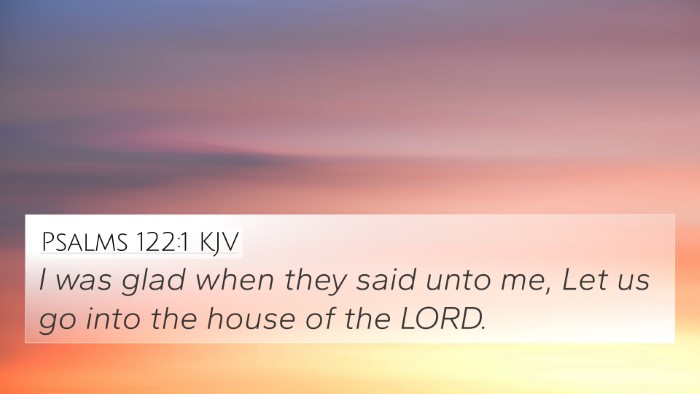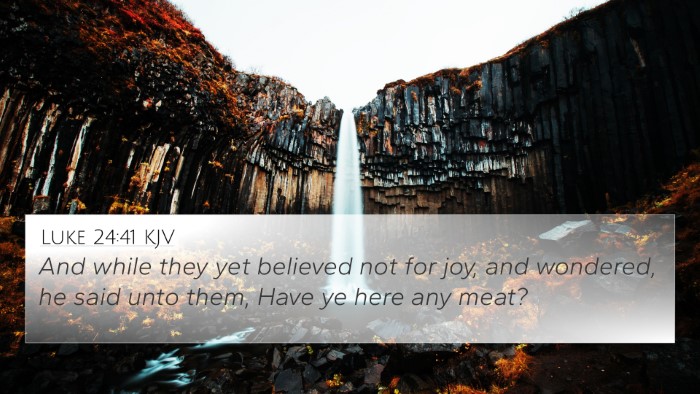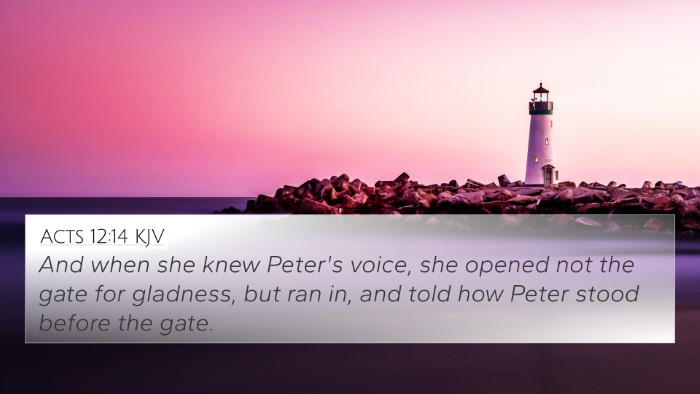Understanding Psalms 126:1
Bible Verse: Psalms 126:1 - "When the LORD turned again the captivity of Zion, we were like them that dream."
Summary of Meaning
Psalms 126:1 speaks to the joyful restoration of the people of Israel after their exile. This verse captures the profound emotional response of the Israelites as they return to their homeland, evoking imagery of dreams and happiness. The transformation from captivity to freedom is celebrated, indicating God’s redemptive power and grace.
Insights from Public Domain Commentaries
-
Matthew Henry:
Henry emphasizes the miraculous nature of Israel’s restoration. He speaks about how the return from Babylonian captivity felt surreal, much like a dream, indicating that God’s hand was significantly involved in this redemption. This return was not just physical, but also spiritual, ushering in a renewed relationship with God.
-
Albert Barnes:
Barnes highlights the contrast between despair and joy, noting that the Israelites, having endured suffering, expressed their happiness at being free. He also mentions that this verse can reflect personal experiences of deliverance, where believers can identify moments in their own lives when divine intervention changed their situations dramatically.
-
Adam Clarke:
Clarke discusses the collective memory of Zion's captives and the overwhelming joy they felt upon their return. He analyzes the historical context and points out that the joy was so immense that it felt unreal, akin to “dreaming.” Clarke also connects this emotional response to the idea of hope and future expectations of God’s continued faithfulness.
Bible Cross-References
This verse connects with several other scriptures, illustrating themes of restoration and divine intervention:
- Jeremiah 30:18: "Thus says the LORD: Behold, I will restore the fortunes of the tents of Jacob and have compassion on his dwellings..."
- Isaiah 61:1: "The Spirit of the Lord GOD is upon me, because the LORD has anointed me to bring good news to the poor..."
- Psalm 126:4: "Restore our fortunes, O LORD, like streams in the Negev!"
- Isaiah 40:1-2: "Comfort, comfort my people, says your God. Speak tenderly to Jerusalem, and cry to her that her warfare is ended..."
- Lamentations 3:22-23: "The steadfast love of the LORD never ceases; his mercies never come to an end; they are new every morning..."
- Zephaniah 3:20: "At that time I will bring you in, at the time when I gather you together; for I will make you renowned and praised among all the peoples of the earth..."
- Matthew 5:4: "Blessed are those who mourn, for they shall be comforted."
Thematic Connections and Analysis
Joy and Restoration: The theme of joy following restoration resonates throughout the Psalms and can be linked to joy after reconciliation with God, as seen in Luke 15:24 with the Prodigal Son's return.
Emotional Response: This verse highlights the joy of salvation and divine intervention, connecting to Romans 5:11 which speaks of rejoicing in God through Christ.
The Role of Faith: This verse invites reflection on faith amidst trials, similar to 2 Corinthians 5:7, "For we walk by faith, not by sight," encouraging believers to trust in God’s plans.
Tools for Cross-Referencing Bible Verses
Utilizing tools such as a Bible concordance or a cross-reference Bible study guide can enhance the understanding of verses like Psalms 126:1. Some methods include:
- Using a Bible cross-reference system to trace themes.
- Employing cross-referencing Bible study methods to draw parallels between verses involving restoration and salvation.
- Consulting comprehensive Bible cross-reference materials for deeper insights.
Long-Tail Keywords Usage
In studying Psalms 126:1, one might inquire:
- How to find cross-references in the Bible.
- Identifying connections between Old and New Testament themes of redemption.
- Cross-referencing Psalms with New Testament teachings on joy and restoration.
Conclusion
The beauty of Psalms 126:1 lies in its emotional depth and thematic richness. Reflecting on this verse can foster hope and joy in the believer's heart, reminding them of the transformative power of God’s grace. Discovering its connections to other scriptures invites a broader understanding of biblical narrative and divine faithfulness.
